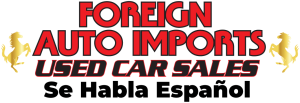How to Identify a Reputable Used Car Dealership

Buying a used car can be an intelligent financial decision, offering the opportunity to get a great vehicle at a lower cost. However, choosing the right used car dealership is the key to a successful purchase. A good dealership ensures quality, transparency, and customer satisfaction.
This guide provides essential tips on identifying reputable dealerships and making your car-buying process smoother and more secure. By knowing what to look for, you can make an informed decision and find a car that suits your needs and budget.
Signs of a Good Used Car Dealership
Choosing the right dealership is critical to a positive experience when buying a used car. Here are essential signs that you’ve found a reputable used car dealership.
1. Reputation
A dealership’s reputation is a strong indicator of its reliability. Look for online reviews and ratings on platforms like Google and Yelp.
Consistent positive feedback from previous customers often means you’re in good hands. Word-of-mouth recommendations are also valuable.
2. Transparency
Transparency is vital regarding the vehicle’s history, pricing, and fees. A trustworthy dealership will provide detailed vehicle history reports and be upfront about all costs involved in the purchase. This openness helps build trust and ensures there are no surprises down the line.
3. Customer Service
Excellent customer service is a hallmark of a good dealership. Staff should be professional, courteous, and willing to answer all your questions. Post-purchase support is just as important, indicating the dealership’s commitment to customer satisfaction.
4. Quality of Inventory
The quality and condition of the dealership’s inventory reflect its standards. Look for a well-maintained selection of vehicles that meet various preferences and budgets. Proper vehicle maintenance and preparation for sale are good signs.
5. Financing and Trade-in Options
Fair and transparent financing and trade-in options are essential. The dealership should offer competitive financing terms and reasonable trade-in valuations. Clear explanations of these processes show the dealership’s honesty and fairness.
Red Flags to Watch Out for at a Used Car Dealership
When buying a used car, recognizing potential red flags at a dealership can save you from a bad deal and future headaches. Here are some warning signs every buyer should be aware of.
1. High-Pressure Sales Tactics
A good dealership creates a comfortable environment where you can take your time deciding. If you encounter pushy salespeople rushing you to make a decision or pushing certain cars excessively, take it as a red flag.
High-pressure sales tactics often aim to move problematic vehicles quickly or finalize sales without giving you time to consider the details. Trust your gut; if you feel pressured, walking away is okay.
2. Hidden Fees and Unclear Pricing
Transparency in pricing is a hallmark of a reputable used car dealership. Watch out for hidden fees or costs that were not disclosed upfront.
Some dealerships might advertise a low price to get you in the door, only to pile on additional charges like “dealer prep fees” or “delivery charges” later in the process.
A trustworthy dealership will break down all costs clearly and early in your discussion. If you are reluctant to provide a detailed price breakdown, consider it a warning sign.
3. Lack of Vehicle History or Vague Answers
Access to a vehicle’s history report is essential when buying a used car. It provides critical information about the car’s past, including accidents, service history, and previous ownership. A reputable used car dealership should readily provide this report or allow you to access it yourself.
If a dealer hesitates to share this information or gives vague responses to your questions about the car’s history, it’s a significant concern. Reliable dealerships value transparency and will ensure you have all the necessary information to make an informed decision.
Additional Tips for a Smooth Car Buying Experience
When buying a used car from a dealership, a few strategic approaches can significantly enhance the process, ensuring it is smooth and efficient. These practical tips aim to empower you with confidence, helping you make a well-informed decision.
1. Conduct Preliminary Research
Initiate the process by researching the specific car model you’re interested in. Look into common issues, average pricing, and expected mileage. This groundwork prepares you and prevents hurried decisions, setting a solid foundation for your purchase.
2. Emphasize the Test Drive
A test drive is essential—never overlook it. This crucial step lets you assess the car’s condition firsthand and see if it aligns with your comfort, driving preferences, and performance expectations. Be attentive to the car’s handling, any odd noises, and the functionality of its features.
3. Conduct a Thorough Inspection
Consider inspecting the car yourself or, better yet, have a professional mechanic do it. This inspection can uncover potential problems that aren’t immediately apparent. Check for wear and tear, examine the tires, and ensure the engine operates smoothly.
4. Grasp Financing Options
If financing the purchase, thoroughly understand the dealership’s financing terms. It’s beneficial to compare these with other financing avenues to secure the best deal. Ensure clarity on interest rates, monthly installments, and loan terms.
5. Be Ready to Negotiate
Prepare for price negotiation. Equipped with your research on the car’s market value, you can confidently enter discussions. The listed price often has a negotiation margin, allowing you to advocate for a more favorable deal.
6. Review Warranty and Return Policies
Before finalizing your purchase, understand the warranty and return policies offered by the dealership. A reputable dealer will provide precise, comprehensive details about what’s covered and for how long. Knowing these policies can provide peace of mind and protect your investment.
7. Check for Hidden Fees
Always inquire about any additional fees that may not be immediately apparent. This includes documentation fees, dealer preparation fees, and any other charges that could inflate the final cost. Transparency in pricing is a sign of a reputable dealership, so be wary of any hidden costs.
Finding the Right Fit at a Dealership
In conclusion, identifying a good used car dealership involves noticing the signs of quality, transparency, and customer service. Focusing on these aspects can significantly reduce the risks of buying a used car. A reputable dealership will offer you a great selection of vehicles and peace of mind.
Remember, a good dealer is interested in building a lasting relationship with its customers, ensuring their satisfaction and trust. If you’re looking for a dealership that meets these standards, consider checking out Foreign Auto Imports for your next car purchase.
